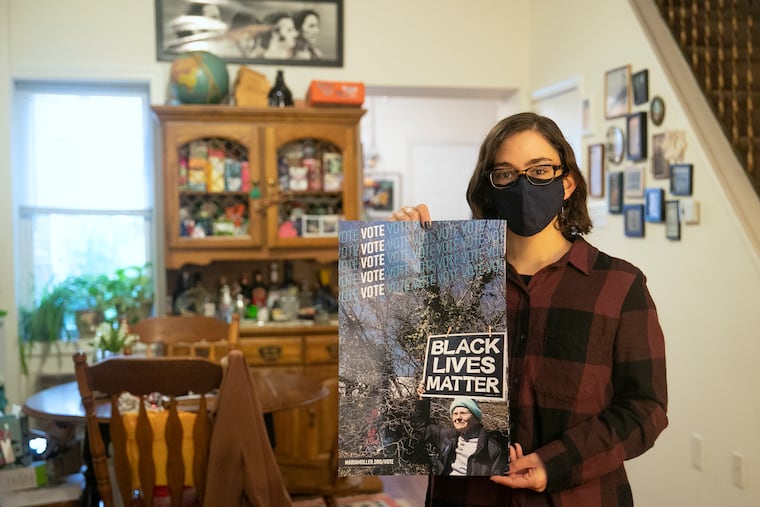Election-related anxiety is real and rising for Philadelphians, regardless of political affiliation
Nearly 70% of U.S. adults reported the 2020 presidential election to be a significant source of stress in their life — an increase from the 52% that said the same about the 2016 election.

In the four years since President Donald Trump was elected in 2016, Kait Renna has gone about her days with a “base layer of anxiety and depression.”
“Every day I wake up, wondering whose rights are going to be taken away,” said Renna, a 30-year-old art teacher living in South Philadelphia. “It’s like, ‘What horrors am I going to wake up to today?’”
Like many voters this year, Renna believes the election has particularly high stakes, which has led to an increase in election-related anxiety.
Renna has struggled with anxiety from the pandemic and ongoing civil unrest and has taken steps to ease feelings of helplessness, like phone banking and posting voting information on her social media accounts. But, those coping mechanisms have become less effective as Election Day approaches, she said.
“The closer we get to the election, the less all that works, and the more upset, angry, and hopeless I feel,” Renna said.
A survey conducted in October by the Harris Poll on behalf of the American Psychological Association found that nearly 70% of U.S. adults consider the 2020 presidential election to be a significant source of stress in their life — regardless of political affiliation. The results were a marked increase from the 52% that said the same about the 2016 election.
Anxiety is driven by fear of the unknown, so it’s no surprise that there has been a spike, said Thea Gallagher, director of the outpatient clinic at the Center for the Treatment and Study of Anxiety at the University of Pennsylvania. Because people have already been feeling depleted over nine months of the pandemic, they’re putting “their hopes and fears in another change, or no change,” she said, referring to the election.
The polarized differences between the presidential candidates feed into the uncertainty, she said.
“People are feeling like there could be catastrophic results either way,” Gallagher said. “People voting [for either candidate] have similar fears. They’re different in what they look like, but the two groups share fears that if things don’t happen the way they want, it would be bad.”
One way to combat the anxiety is “trying really hard not to catastrophize” and staying in the present by doing activities that bring pleasure, Gallagher said. She also encourages patients to channel their anxiety into something actionable related to the election.
That’s what Mark Tinkleman has been trying to do for the last few months. Tinkleman, who lives in South Philadelphia, got into jigsaw puzzles and piano to take his mind off anxious thoughts about Trump’s refusal to commit to a peaceful transfer of power if he loses. He’s also worried about how Biden voters will react if the Democratic nominee does not win, though he is hopeful they will continue to protest if he is not elected.
But Tinkleman has mostly tried to channel his heightened stress and anxiety into activism — the 33-year-old has been an organizer with the Philly chapter of Refuse Fascism for four years.
“Organizing doesn’t get rid of anxiety, but it does do something about it,” Tinkleman said. “You get a chance to see there is potential for things to change in a positive direction, and you’re part of doing that.”
Consuming too much news about the election can worsen anxiety, said Jeff Greeson, a psychology professor at Rowan University. But people also want to be in control of as much information as possible to combat the feelings of uncertainty, Greeson said.
“It’s just about how and where we’re getting that information,” he said. “For example, if you have the television on and it’s just feeding that information to you, you can’t control that. But subscribing to news services and choosing a format of news gives us more agency over what we’re consuming, which can help decrease anticipatory anxiety.”
Making a conscious effort to stay in the moment can help with that, both Greeson and Gallagher said. Being intentional in protecting your space and time, like staying out of conflict with loved ones over politics, is important, Gallagher said, while Greeson said that doing something physical, like taking a walk with your dog, can help quiet your mind during stressful times.
“These issues matter deeply to people,” Gallagher said. “But we have to practice radical self-care and take it one step at a time.”